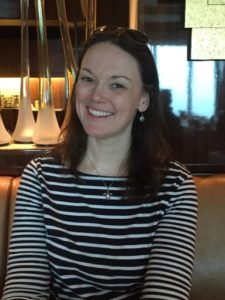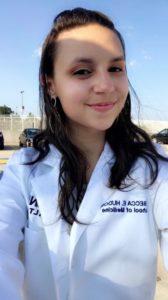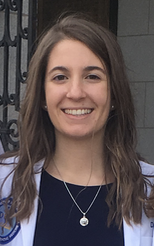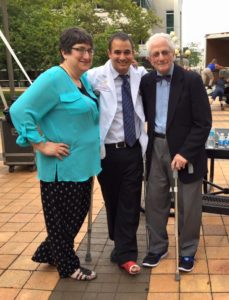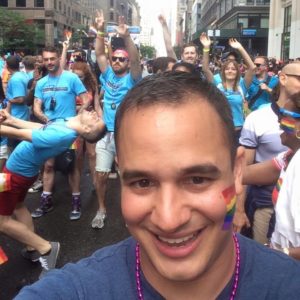Mon 16 Sep 2019
A conversation with public health nurse Elaine Lydick
Posted by allen under Roanoke College students in healthcare
Comments Off on A conversation with public health nurse Elaine Lydick
We talked with Elaine Lydick on July 31, 2019. Elaine had a more circuitous route to the healthcare field than some of our other featured alums. Elaine graduated in 2010 with a degree in Sociology and Spanish. Having studied in Costa Rico during her time here, she wanted to work further in South America and pursued a master’s degree in Global Health at George Mason. She then realized that nursing would be a good fit for her goals and entered a nursing program at George Mason that was specifically designed for people who already held a degree. Today, she is a public health nurse in Alexandria, Virginia.
Elaine specializes in the baby care program and is a field nurse, meaning that she goes out to see women who are pregnant and/or have new babies. A lot of her work involves educating these new mothers and providing resources so that illnesses and problems can be prevented, which is obviously far preferable to treating an existing disorder (to use Elaine’s example, a person with diabetes who lost a leg can be treated to control blood sugar, but that’s not going to bring the leg back). Many of her patients are immigrants from Central America and thus Elaine’s Spanish-speaking ability and her experience in Costa Rica have been invaluable.
What is the rewarding aspect of nursing? Nurses are very trusted and in many settings they spend a lot of time with patients, far more than does a physician. They can get to know a patient and advocate for that patient when necessary. Elaine noted that in her experience, physicians respected nurses and their experience with patients and frequently asked for input or opinion. What kind of person might be suited to nursing? Elaine pointed out that the skill set needed depended very much on what kind of nursing one was doing: office nurses, hospital nurses and field nurses have pretty different work experiences. So there is a range of “sweet spots” for someone who wants to pursue nursing.
Most of the science classes that Elaine took were in nursing school, so what did skills or knowledge did Roanoke College provide? Elaine credits RC with helping her develop critical thinking skills, and the emphasis on classroom discussions and writing were very useful as well. Often in nursing one needs to “think on your feet”; she’d gotten good practice with class discussions and essay exams. Plus, the variety of classes that she took and the engagement with professors was also really helpful.
Best of luck to Elaine Lydick in continuing her career in nursing!
